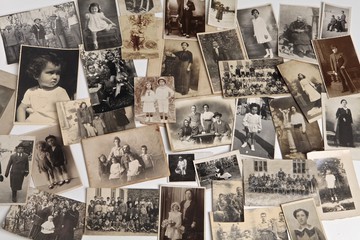
The meaning of life is to find your gift. The purpose of life is to give it away.”
– William Shakespeare
Living life is one thing, and leaving life is another. When we live life, we fill it by sharing our different kinds of experiences with our families, our friends, and others. When we leave life, we leave something of ourselves behind, whether it’s sharing a tangible something that is physical, written in a formal Will/Last Will and Testament, Living Trust, or an intangible form, called an Ethical Will, including a spiritual value that we wish to pass on to those we care about.
In this article, we will briefly explore the different kinds of wills, suggestions on how to write a Will, and why you may want to consider writing an Ethical Will, which spells out those intangible values that you desire your loved ones to know.
When reading any of my articles, you may perhaps see how much I enjoy language, and when I go deeper into the word “will”, the variations of “will” basically come down to the essence of the self. It’s deliberately choosing or deciding upon a course of action that is purposeful, which makes sense because one must have the will to write a Will, regardless of the form.
What is a Will/Last Will and Testament?
According to the Free Dictionary, a Will/Last Will and Testament is “a legal declaration of how a person wishes his or her possessions to be disposed of after death, a legally executed document containing this declaration.” [1] The person making the Will is called a Testator and the Last Will and Testament is the document that follows a number of legal requirements.
That sounds simple enough, and depending on the circumstances, you can write your own Will yourself or hire an estate attorney to do so. It’s important to know that in having a Will (and not a Living Trust), your possessions will go through, what’s called, a probate process, which is a public, court-supervised process of reviewing what you have written, paying your debts and distributing your property to the people you have designated to inherit whatever tangible property/cash, etc., and this process can drag on for months before your inheritor(s) gets anything. In many cases, about 5% of the property gets eaten up by lawyers and court fees. [2]
What is a Living Trust?
A Living Trust is a document that also designates what you want to leave to your heirs but is not subject to probate court, which can be lengthy and expensive. You would also need a Will because a Trust cannot be used to name guardians for children. The biggest advantage of having a Living Trust is that the property you are leaving does not have to go through the probate court, and remains a private matter, but again, depending on your personal circumstances, financial assets, age, etc. you may or may not need to create a Living Trust. A simple Will/Last Will and Testament may serve your needs. If you have a large estate and are likely to die in the next ten years or so, consider creating a Living Trust, that you could do either yourself online or go through an estate attorney.
What is a Living Will?
A Living Will is a document created to spell out your health wishes if you become mentally incompetent or unable to communicate. Any medical treatment that you would desire to sustain or prolong your life or not, is spelled out, in case you ever needed invasive or extraordinary means to keep you alive. [3] In learning, how to write a Living Will, you will be asked to designate someone you trust, as your health advocate/agent to represent you in making decisions, giving them medical power of attorney for all your health issues. By doing this, you are giving them permission to talk with your doctors, review your medical records, and honor the decisions that you have made for your own health and well-being. This could be a relative or friend, but definitely someone you trust implicitly.

Photo credit to Fotolia
There is a multitude of Living Will examples in every state. The Five Wishes is one such example that can be obtained online. A few other organizations, such as Sacred Crossings, and Good to Go have taken the Living Will a step further, asking what you would wish for your funeral, home funeral and how to dispose of your body. I talked about this in our article, called, Life and Death Planning.
For our readers, I have created a short Spiritual Advanced Directive Living Playbook, asking questions that are designed to be thought-provoking, mindful-making, created for you to explore some things you may not have considered before, preparing you for writing an Ethical Will.
What is an Ethical Will?
An Ethical Will is a document derived from the Judeo-Christian tradition. The original template for its use came from Genesis 49:1-33. When Jacob was dying, he gathered his sons to offer them his blessing, and to request that they bury him not in Egypt, but instead in Canaan in the cave of Machpelah with his ancestors.[4] The early rabbis urged men to “transmit the tradition’s ethical teachings,” and they communicated orally to their sons. Later they were written as letters.[5]
Other Biblical examples of Ethical Wills, include Deuteronomy 32: 46-47, where Moses instructs the Israelites to be a holy people and teach their children, and Matthew 5, where Jesus teaches the 8 Beatitudes, to his disciples, [6] then tells them to go out and “teach all nations”. Each proverb-like proclamation of “being” is full of meaning. He even gives them a template in creating their own beatitudes of life using two phrases: the condition and the result. Jesus reinterpreted an older tradition, with a new set of “Christian ideals that focus on a spirit of love and humility.”[7]
As human beings, we have an instinct of wanting to leave our life “wisdom” to be carried on into our future generations – a legacy of wisdom gathered from life.
In modern times, the tradition of writing Ethical Wills came again into the forefront, during World War II, when parents facing the Holocaust, would send their children off to America, and other countries on ships, knowing that perhaps they would never see them again. They would tuck letters into their children’s coat pockets, and tell them to read the letters after the ship sailed away. Many such letters contained wishes for a good life, particular values to live by, and blessings to send them on their way to a new land.
Today, Ethical Wills are written by men and women of every age, ethnicity, faith, tradition, economic circumstance, and educational level. Institutionally, the Ethical Will is used as a tool for spiritual healing in religious communities and in health care, with seniors, the ailing, the aged, and the dying. Estate and financial professionals use the Ethical Will as a foundation with clients to articulate the values that inform charitable and personal financial decisions in preparation of the Last Will and Testament. [8]
Historically, Ethical Wills have contained blessings, personal and spiritual values, and burial instructions. Today, Ethical Wills can also include important beliefs, hopes, life lessons, and a vehicle of forgiving others and asking for forgiveness.
Writing an Ethical Will may well be one of the most cherished gifts you can give to your family. An Ethical Will reflects the “voice of the heart.” Think of it as a love letter to your family. Every Ethical Will is as unique as the person who writes it.
Is an Ethical Will a Legal Document?
No.
Only your Will/Last Will and Testament or Living Trust that states what material possessions you would like to leave to your heirs and to whom you delegate powers of attorney, are legal documents.
An Ethical Will simply imparts your values and beliefs… it reveals a core essence of what makes you who you are and what you have achieved. It shares important insights you’ve gleaned and how you’ve become the person you are through cumulative life experiences. This is your opportunity to pass on any life lessons, customs, traditions, family history, anecdotes, and all that uniquely defines YOU – a legacy that may even outlive the riches of material wealth.

Why Write an Ethical Will?
- It helps you identify what you value most, what you stand for, and what your most important last words are to your loved ones.
- By articulating what you value now, you can take steps to ensure the continuation of those values can be held on to into future generations.
- You see yourself in terms of your life essences when you engage in the process of writing an Ethical Will. The interesting dynamic in creating an Ethical will is what happens to you in the process. First, you are leaving your spiritual legacy that positively affects the world. Second, you may achieve a greater self-understanding in an interesting, fulfilling way. It also helps you come to terms with your mortality, helping you achieve a sense of peace with the knowledge that your words will live on after you’re gone.
- It provides a sense of completion in your life.
- If you don’t tell your stories and the stories from where you’ve come, no one else will, and they will be lost forever. We all want to be remembered, and we all will leave something behind. We all want to believe our lives mattered.
Purpose of an Ethical Will
The goal of writing an Ethical will is to link us to both our family and our cultural history, clarify our ethical and spiritual values, and communicate a legacy to future generations. It addresses our “universal needs,” as human beings. Writing an Ethical Will clarifies our identity and focused life purpose, and addresses our human need to belong, to be known, to be remembered, to have one’s life make a difference, to bless and to be blessed.
The content may not differ from writers of spiritual autobiographies or memoirs, but the intent makes an Ethical Will unique. “The generic purpose of the Ethical Will is to pass on wisdom and love to future generations.” [9] Your Ethical Will can include family history and cultural and spiritual values; blessings and expressions of love for, pride in, hopes and dreams for children and grandchildren; life-lessons and wisdom of life experience; requests for forgiveness for regretted actions; the rationale for philanthropic and personal financial decisions; stories about the meaningful “stuff” for heirs to receive; clarification about and personalization of advance health directives; and requests for ways to be remembered after death. [10]
How to Write an Ethical Will
Writing an Ethical Will begin by jotting down notes about your beliefs, life lessons and hopes for the future. You might include details about your family history. You also may want to express gratitude toward family and friends or request forgiveness for past actions. Record your thoughts and stories for a few weeks or months, and then use your notes to draft a letter or personal history. Then review and revise the document over time.
If you get writer’s block, books such as Ethical Wills: Putting Your Values on Paper by Barry K. Baines, M.D., and Legacy: A Step-by-Step Guide to Writing Personal History by Linda Spence contain writing prompts, which you and your loved one may find useful. For more inspiration, look to books, such as, So That Your Values Live On Ethical Wills and How to Prepare Them edited by Jack Riemer and Nathaniel Stampfer, and The Measure of Our Success: A Letter to My Children and Yours by Marian Wright Edelman. [11]
I also came across another website, with a book, called, Your Ethical Will that looks very thorough. It gives you step-by-step details on how to write the “wealth of your life,” your spiritual Ethical Will. Their website is http://www.spiritual-ethical-will.com.
An Ethical Will is meant to be shared during your lifetime. Once you or your loved one have completed a final draft, share it with family and friends sooner, rather than later. They’ll likely cherish it for years to come.
Different Approaches to Writing an Ethical Will
When people think about writing their spiritual Ethical Will, what immediately comes up is something very serious or even religious. While this is definitely true for some, you may find to not make this your approach. You may choose to come from your sense of humor, and so this may be your own unique approach that will really remind your loved ones how you’d speak at times and have that signature amusing humor come alive each time they read it. By all means, pass that wonderful gift on to your next generation!
Perhaps You Could Start with a Joke
Naturally, there are several ways you can open an Ethical Will. You can pull a funny quote or even tell a joke. The joke can relate to death, afterlife or just an off the wall topic. By starting with a joke, you will be making the people you left behind feel better and have a good laugh during a difficult moment. Example: A man died, and on his tombstone, it said, “I told you I was sick.” Now, this may not be your taste, but you can come up with something that resonates with YOUR sense of humor.
Perhaps Write Your Ethical Will as a Limerick
Your sense of humor can be the guiding force for the development of your Ethical Will. In fact, if you are known for your racy sense of humor, then you can create an Ethical Will limerick. If you need help with the rhyming then you can turn to a rhyming dictionary. You may choose to write individual ethical letters to people, and so you can craft your limerick to be age appropriate for the individual for whom it’s intended.
Perhaps Add Humorous Stories
Another option that you have that will infuse your Ethical Will or ethical letters with your humor is to tell humorous stories about the people that you loved during your life. You can tell stories about when you were a child, about your grandparents, or when you had children, and even when you had grandchildren. You can also tell stories that you heard that was funny but that also taught some kind of moral lesson. The stories that you select are really up to you, but people enjoy these kinds of memories so you can think about adding one to your Ethical Will.

Guiding Questions to Consider When Writing Your Ethical Will
- What was it like growing up in your birth family or family of origin?
- Who were the important people who influenced your life? What did they teach you?
- What great events did you personally witness, if any?
- What effect, if any, did world events have on your life? Any advice about that?
- What trade, profession or occupation did you pursue? Why? What lesson would you offer from your own experience?
- If you married and had children, what was most important in your family life?
- What place did God have in your life as an adult, and did that change over time?
- What were the outstanding experiences of your adult life?
- What values or ideals have proven to be most important in your life?
- Based on what you know now, is there anything you would have done differently?
- What values would you want to impart to your children that you learned to that were important?
- What did you learn from your parents that you took into consideration in your own life?
- What did you learn that you did NOT want to encourage?
- Ask any more questions you have.
Be sure to include any other areas that are important to you. Address whatever is significant that you want future generations to know.
When Do I Write My Ethical Will?
Start Today
If you were not here tomorrow, what would be the most important thing you would not be left unsaid? It might be as simple as saying, “thank you,” in your own words. Write it down – you’ve begun.
Approach it in a relaxed manner and just BE Yourself. You are not trying to write for the Pulitzer Prize. What you create is a gift of yourself, made for those you love, not for an imaginary panel passing judgment on your life or your writing.
Some Questions to Ask Yourself and Issues to Take into Consideration
What do I want to make sure my loved ones know and have in writing? What messages, feelings, and information do I want to endure beyond my life?
Consider It as a Work in Progress
Start small and add to it over time if you wish. It’s natural to expect that what seems most important to share might grow and change as you and your audience age.
BE Mindful, Infuse Kindness, and BE Loving
The impact of your words can affect a village.
Make it Easy to Find
Keep it in an accessible file, so you can add to it effortlessly. Keep it with your legal papers or refer to where it can be found. Make sure your words find their intended audience.
Consider Sharing It During Your Lifetime
Even as you know you may change your document over time, think of the rewards of creating a monologue that will promote dialogue. You may choose a certain day to make it a day of celebration, making the focal point the reading of your ethical will. Your imagination and inspiration can be your guide, and anyway, you choose will be remembered along with your words.
Some Occasions for Writing an Ethical Will
Certainly, the most important time for writing an Ethical Will is before you die, but since no one knows exactly when that will happen, then writing down what values and learnings you achieved as you go through some key phases of your life may be important.
For couples getting married, the divorce rate is still about 40%, with 70% divorces occurring within the first 5 years of marriage. [12] Writing an Ethical Will can help a couple to clearly understand each other’s values, and it can contribute to building a foundation of common values for the marriage. I co-chaired a program at the American Jewish University, called, “Making Marriage Work.” Couples found that just taking the time to know and understand each other’s values in a tangible way, at the beginning of their relationship, served as reminders of their essences, and even helped them stay together.
Since children don’t usually come with a “user’s manual,” new and expectant parents can use an Ethical Will to provide a foundation of common values upon which to approach raising the child. In addition, when understanding each other’s important values, an Ethical Will can help in conflict resolution and improve communication with children.
Even in divorce, an Ethical Will can provide some security and reassurance for the children involved, by providing what’s important to their parents. In a divorce situation, you might want to think about minimizing, or even totally avoiding, the “blame factor”. For empty-nesters-to-be, what a great gift to give to your children when they leave the house. An Ethical Will provides the opportunity to launch them into a new kind of adult relationship.
For those of us who are middle age baby boomers and beyond, writing an Ethical Will is a perfect opportunity to share our life experiences, converting them into wisdom that can be passed down to future generations, and if we are still fortunate enough to have parents, we can ask them what their values are they want to pass to us. It’s never too late to write an Ethical Will.
At the end of life, we are not always able to write nor have the energy nor the time, but writing an Ethical Will really adds a transcendent dimension to our lives, by providing a link to our future generations, our legacy of values and beliefs for that time when we are gone.
Summary
It is my hope that you now understand the difference between a Will/Last Will and Testament, a Living Trust, a Living Will, and an Ethical Will. Each has its own merit and its own purpose. Because we are complex beings, we are able to express ourselves through each document in a way that reflects the love we share for those we leave behind. Let us live life as fully as possible, gaining valuable experiences, and leaving the values and assets we believe are so very meaningful.
It’s your life. Enjoy the journey. And, remember to bring love into everything you do.

References:
[1] http://www.thefreedictionary.com/Will
[2] http://www.nolo.com/legal-encyclopedia/living-trust-faq.html
[3] http://www.thefreedictionary.com/living%20will
[4] https://en.wikipedia.org/wiki/Ethical_will
[5] https://en.wikipedia.org/wiki/Ethical_will
[6] https://en.wikipedia.org/wiki/Beatitudes
[7] https://en.wikipedia.org/wiki/Beatitudes
[8] https://en.wikipedia.org/wiki/Ethical_will
[9] https://en.wikipedia.org/wiki/Ethical_will
[10] https://en.wikipedia.org/wiki/Ethical_will
[11] http://celebrationsoflife.net/ethicalwills/examples/
[12] http://www.refinery29.com/2017/01/137440/divorce-rate-in-america-statistics





